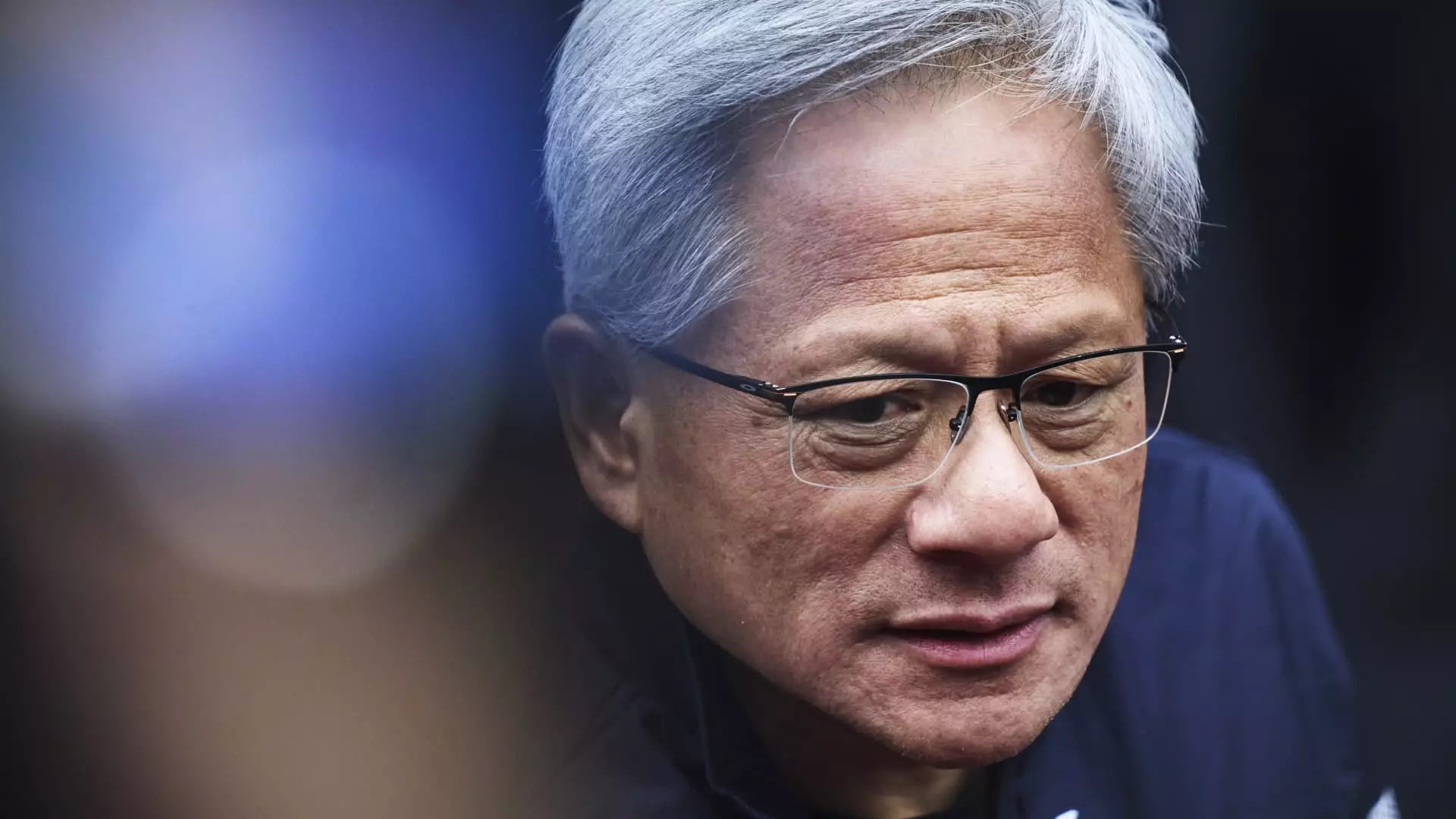In a world increasingly shaped by technological advancements, the intersection of industry and policy has never been more critical. On a notable Friday afternoon in Washington D.C., Nvidia’s CEO, Jensen Huang, met with President Donald Trump with the weighty subject of U.S. artificial intelligence policy on their agenda. This meeting comes at a time when AI is no longer a mere concept but a vital driver of economic and technological growth. The involvement of major tech figures like Huang showcases the growing trend of corporate leaders engaging directly with governmental authorities to discuss issues that will shape not just the industry but the national landscape.
The backdrop of the discussion raised eyebrows, particularly with China’s DeepSeek entering the picture. The conversation, as reported by sources familiar with the meeting, likely encompasses not just the technological arms race but also addresses broader diplomatic and economic strategies in relation to AI development. The collaboration and competition between the U.S. and China in AI technology pose a significant challenge and opportunity for policymakers and industry leaders alike.
The dynamic between business leaders and governmental authority has shifted notably since Trump first took office. While initially ambivalent towards the tech sector, Trump’s administration has seen a noticeable embrace from numerous technology executives. For Huang, this meeting marks a critical point in fostering a relationship with Trump as they navigate complex regulatory waters together. This meeting is more symbolic, illustrating how tech CEOs now play influencer roles in shaping policy, as seen with figures like Elon Musk, who has established himself as an influential advisor through his deep financial ties to the administration.
Huang stands among a cadre of influential industry leaders who were present at Trump’s recent inauguration, emphasizing an evolving partnership between Silicon Valley and the political elite. The collective presence of tech giants such as Amazon’s Jeff Bezos and Apple’s Tim Cook indicates a strategic alignment, which underscores the mutual recognition of the importance of technology in national prosperity.
Nvidia, now sitting as the third most valuable company in the U.S., is facing a storm of regulatory challenges as escalating international demand for its AI chips collides with tightening export restrictions. The constraints currently imposed on selling high-level AI chips to countries like China and Russia will likely feature prominently in Huang and Trump’s discussions. With the Biden administration signalling its stance through the recently announced diffusion rule, the potential for reversing such restrictions looms large.
These evolving dynamics highlight the frailties in global supply chains, especially for companies like Nvidia, whose chips are predominantly produced in Taiwan. Herein lies a quintessential dilemma for American corporations: the delicate balance between domestic production and the global logistic network that currently undergirds their operations. With potential sanctions and export limitations on the horizon, the conversations between Huang and Trump are particularly crucial in understanding how U.S. policy could pivot in response to these pressures.
Investment in U.S. semiconductor production will undoubtedly rise on the agenda. The Commerce Department’s intent to overhaul the previous CHIPS Act aiming to rejuvenate domestic chip manufacturing underscores a governmental recognition of the necessity for self-sufficiency in critical technologies. Huang and Trump must delve into how policy changes can facilitate advanced semiconductor foundries on American soil, thereby curbing reliance on international partners.
As the geopolitical landscape shifts, the importance of establishing robust domestic manufacturing capabilities cannot be overstated. Strengthening the semiconductor sector could bolster national security while ensuring that American companies like Nvidia can thrive without facing the existing headwinds presented by foreign relations.
Ultimately, Huang’s meeting with Trump is emblematic of a broader trend where leadership in the tech sector is becoming inextricably linked to governmental policy. Navigating these relationships will be vital for both industries moving forward. In a world increasingly reliant on artificial intelligence, the discussions held in Washington D.C. have implications that stretch far beyond boardroom strategies—they resonate at the very heart of U.S. competitiveness on the global stage. The outcomes of this meeting could very well shape the trajectory of AI development and the relationships that define international technology markets.

Leave a Reply